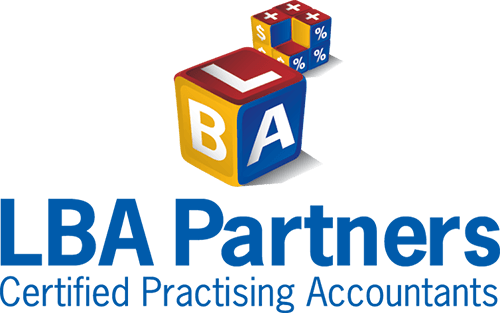P r a c t i c e U p d a t e
March 2013
Help for taxpayers – Bushfires and floods
The government and the ATO have announced help for taxpayers affected by the recent floods and bushfires that have been plaguing the country for the past weeks.
The government has announced that it will provide tax deductible status to relief funds established to help Australians affected by bushfires and floods.
In addition, the ATO will automatically make arrangements to defer the following taxation obligations for taxpayers in the affected areas:
- lodgment and payment of the monthly December, January and February activity statements to 29 April 2013; and
- lodgment and payment of December quarterly activity statements from the original due date of 28 February 2013 to 29 April 2013.
Taxpayers do not need to apply for a deferral.
There are some exclusions, particularly for large withholders and for super guarantee payments generally.
ATO Data Matching programs
The ATO has announced the following two data matching programs.
It is going to go to:
- Centrelink and Veterans' Affairs to collect names, addresses and other related information of taxpayers who received tax-free government pensions or benefits in 2010/11 and 2011/12 and compare them with their claims for dependent tax offsets; and
- Local Councils and Shires throughout Queensland, Tasmania, NSW and Victoria to acquire details of payments to approximately 20,500 individual contractors in 2010/11 and 2011/12.
Company loss carry-back rules
Editor: Legislation has now been tabled to introduce the new company loss 'carry-back' rules. This may be of real benefit to corporate clients who are unfortunate enough to incur losses in the 2012/13 year onwards.
Structure of the Carry-back Rules
Basically, the provisions operate as follows:
- start day is 1 July 2012;
- a one year carry-back applies for 2012/13 tax losses;
- up to $1 million worth of tax losses are subject to 'carry-back' each year for a company to receive a refund of tax paid in a prior year, providing a cash benefit of up to $300,000 a year (i.e., 30% company tax rate x $1 million);
- the measure only applies to tax (i.e., revenue) losses of a company and not to capital losses;
- an integrity rule will deny companies access to the new rules where there is a change in the control of the company to take advantage of the new rules; and
- tax losses carried-back are limited to the franking account balance of the company.
The super fund pension exemption extended after
death of recipient
Editor: Clients with a self managed super fund (SMSF) may be aware that, if the fund pays a pension, income from the assets supporting the pension can be exempt from tax (the 'pension exemption').
However, if the pension ceases, this generally means that the pension exemption also ceases.
The government has introduced changes to the law to ensure that a super fund's investment earnings that were supporting a pension will continue to be tax exempt, following the death of the pension recipient, until the benefits are paid out of the fund – as long as the benefits are paid out as soon as practicable.
The measure will apply to the 2012/13 and later income years.
Pension deeming rates to be reduced
Clients on full or part government pensions will be pleased to know that the government will reduce pension 'deeming rates' from 20 March 2013 to better reflect returns available to them from their financial investments.
Deeming rates reflect the standard rates of return that pensioners can earn from their financial assets. They are used to determine how much pension they are entitled to receive under the means test.
The 'lower deeming rate' will decrease from 3% to 2.5% for financial investments up to $45,400 for single pensioners or $75,600 for a couple.
The 'upper deeming rate' will decrease from 4.5% to 4% for balances over these amounts.
Payments affected by the deeming rate include means tested payments, such as the Age Pension, Service Pension, Disability Support Pension and Carer Payment, income support allowances and supplements such as the Parenting Payment and Newstart.
Baby Bonus drops from $5,000 to $3,000
Under legislation recently tabled, from 1 July 2013, the Baby Bonus will be reduced to $3,000 for second and subsequent children.
Under the new Bill, the Baby bonus will continue to be paid at the rate of $5,000 for a family's first child, and for each child who comes into the family in a multiple birth, adoption or entrustment to care.
However, the amount of baby bonus for second and subsequent children who come into a family from 1 July 2013 will be reduced to $3,000.
Transferring assets to SMSFs
Editor: Other new legislation introduced is also set to change the way in which 'business real property' is acquired by an SMSF from 1 July 2013.
The new law now inserts a 'qualified independent valuer' into the picture.
Specifically, the new law requires that business real property acquired by an SMSF from a related party must be acquired at market value as determined by a 'qualified independent valuer'.
The valuer may be qualified either:
- through holding formal valuation qualifications; or
- by having specific knowledge, experience and judgment according to their particular professional community (e.g., by being a current member of a relevant professional body or trade association).
The valuer must also be independent, so the valuer cannot be a member of the fund or a related party of the fund.
Taxpayer hit with 93% tax on excess superannuation contribution
Editor: A taxpayer, whose employer failed to transfer funds into her super fund account at the end of the financial year, has been hit with excess contributions tax of 93% when those contributions were received by the fund in the following year. This is another glaring example of how things can go wrong if they are not correctly attended to at the end of the financial year.
Clients who are considering super contributions at year end should consider speaking to us first.
Please Note: Many of the comments in this publication are general in nature and anyone intending to apply the information to practical circumstances should seek professional advice to independently verify their interpretation and the information's applicability to their particular circumstances.



